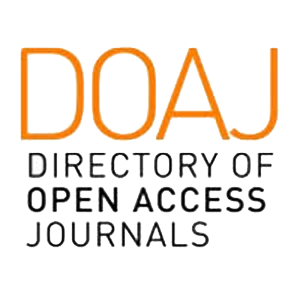FORMACIÓN, EMPLEO Y MERCADO LABORAL EN LA ECONOMÍA DIGITAL
Abstract
The objective is to analyze the implications of ICT in the digital economy and the labor market, in addition to its effects on digital skills for the labor market. The method is qualitative under the modular research model by transformation object, with argumentative and conceptual design, of descriptive type. The results highlight that the impact of technological change in the labor market lies in changing the work schemes and the characteristics of the labor market, where digital factors are determinants in work activities that go beyond the production process, by directly influencing areas of the professional and personal life of workers; as well as in the structure of the labor market. The main findings reveal that above a better salary stipend, currently there are strategies with greater labor flexibility for the development of workers, which suggests that ICT in general and the Internet in particular, they are central factors of technological change and the new context of the labor economy. In conclusion, ICTs lead to a change in the profile of workers, which implies that they are in constant training, through connectivity strategies that allow them to develop digital skills and immaterial work.
Downloads
References
Autor, D., Levy F. y Murnane R., “The Skill Content of Recent Technological Change: An Empirical Exploration”, Quarterly Journal of Economics, 118 (4), 2003, pp. 1279-1333.
Acemoglu, D., “Technical Change, Inequality, and the Labor Market”, Journal of Economic Literature, 40 (1), 2002, pp. 7-72.
Berman, E., Bound J. y Machin S., “Implication of Skill-Biased Technological Change: International Evidence”, Quarterly Journal of Economics, 113 (4), 1998, pp. 1245-1279.
Berman, E., Bound J. y Griliches Z., “Changes in the Demand for Skilled Labor within US Manufacturing: Evidence from the Annual Survey of Manufacturers”, Quarterly Journal of Economics, 109 (2), 1994, pp. 367-397.
Card, D. y DiNardo J., “Skill-Biased Technological Change and Rising Wage Inequality: Some Problems and Puzzles”, Journal of Labor Economic, 20 (4), 2002, pp. 733-783.
Campos Freire, F. y Alonso Ramos, N., “Las herramientas digitales sociales en línea para la autopromoción laboral. Hacia un estado de la cuestión”, Revista Latina de Comunicación Social, 70, 2015, pp. 288-299.
Castillo Soto, M. y Lechuga Montenegro, J., “Las Tecnologías de la Información y la Nueva Economía”, en Lechuga Montenegro (2005) Reflexiones acerca de la era de la información (New Economics), Universidad Autónoma Metropolitana, México, 2005, p. 332.
Cave, M. y Flores Roux, E., Posibles Beneficios de la Economía Digital para México, 2017, p. 3-65. http://ceeg.mx/new/wp-content/uploads/2017/01/Posibles-Beneficios-de-la-Economi%CC%81a-Digital-para-Me%CC%81xico_2017.01.27.pdf, [Consultado el 6 marzo de 2017].
Duffy, B.E., “The romance of work: Gender and aspirational labour in the digital culture industries”, International Journal of Cultural Studies, 19 (4), 2017, pp. 441-457.
Expósito, J., “Una transformación digital también en el mercado de trabajo”, 2017, Diario Expansión. http://www.expansion.com/especiales/30aniversario/tecnologiainnovacion/2017/01/27/5889f940268e3e3d6a8b4590 [Consultado el 30 de marzo de 2017].
Félix-Verduzco, G. y Torres García, A. J., “Prima salarial al uso de computadora en el trabajo. Evidencia de microdatos para México”, El trimestre económico, 85 (337), 2018, pp. 137-168.
García Irigoyen, E.M., “Economía Social Innovación Tecnológica: Experiencias de Éxito en Entornos de Precariedad”, Journal of Technology Management & Innovation, 11, 2016, pp. 86-92.
García Sánchez, M.R., Reyes A., J., Antúnez S., T., Godínez Alarcón. G., Silva G., A., “Reforma laboral en México”, “¿Solución a la justicia social?”, 5 (9), 2016. https://www.ricsh.org.mx/index.php/RICSH/article/view/74/385, [Consultado el 17 de marzo de 2017].
Gómez Tamez, A., “Los terribles efectos para México de un triunfo de Donald Trump”, 2016. http://www.elfinanciero.com.mx/opinion/los-terribles-efectos-para-mexico-de-un-triunfo-de-donald-trump.html [Consultado el 18 de marzo de 20017].
González, G., S., “Economía digital promueve el auge de empresas unicornio”, 2016. http://www.jornada.unam.mx/ultimas/2016/04/23/economia-digital-promueve-el-auge-de-empresas-unicornio [Consultado el 14 de marzo de 2017].
Graham, M., Hjorth, I., Lehdonvirta, V. “Digital labour and development: impacts of global digital labour platforms and the gig economy on worker livelihoods”, Transfer, 23 (2), 2017, pp. 135-162.
H.Cámara de Diputados, Aspectos Relevantes de la Competitividad del Sector Industrial, 2017. http://www.cefp.gob.mx/publicaciones/documento/2017/eecefp0012017.pdf [Consultado el 14 de marzo de 2017].
Hurwitz, J., Nugent A., Halper, F., and Kaufman, M., Big Data for Dumies. A Wiley Brand, Ed. John Wiley & Sons, Inc, Canada, 2013, p. 336.
Klett, F., “Active competition and efficiency of labor: Significance of modern web-based e-learning and training services and recent standards developments 2008 ITI”, 6th International Conference on Information and Communications Technology, ICICT 2008, 4806641, 2008, pp. 53-58.
Kulesz Octavio, El impacto de las tecnologías digitales en la diversidad de las expresiones culturales de España e Hispanoamérica, Paris, UNESCO, 2016. http://en.unesco.org/creativity/sites/creativity/files/sessions/10igc_inf4_the_impact_of_digital_technologies_octavio_kulesz_sp.pdf [Consultado el 3 de marzo de 2017].
Lagunes, A., Las nuevas fronteras de la economía digital, 2016. http://www.elfinanciero.com.mx/opinion/las-nuevas-fronteras-de-la-economia-digital.html [Consultado el día 13 de marzo de 2017].
Leo, F. S. W., Chan, Y. N., “Promoting learning effectiveness in science through using mobile learning platform in observing living organisms within school campus 2011”, International Conference on Electrical and Control Engineering, ICECE 2011- Proceedings, 6056754, 2011, pp. 6705-6709.
López L., Ma. E. y Saladrigas M., “Las TIC. Un nuevo escenario para el desarrollo local de las comunidades”, Revista Opción, 32 (10), 2016, pp. 71-94.
Luna Arredondo, P., México saliendo de la zona de confort, 2017, http://eleconomista.com.mx/columnas/columna-especialvalores/2017/01/02/mexico-saliendo-zona-confort, [Consultado el 27 de marzo de 2017].
Mahmoudi, D., Levenda, A., “Beyond the screen: Uneven geographies, Digital Labour, and the city of Cognitive-Cultural Capitalism”, Journal TripleC, 14 (1), 2016, pp. 99-120.
Messuti, A., Wambeke, T., Kalz, M., Bruschi, B. “M-workplace learning @ ITC-ILO: Design thinking for mobile-learning interventions at work”, Communications in Computer and Information Science, 479 (1), 2014, pp. 272-286.
Mochón, F., Gonzalvez, J. C. y Calderón, J., Economía digital curso MOOC, Editorial Alfa Omega, México, 2014, p. 181.
OCDE, Perspectivas de la OCDE sobre la economía digital 2015, Ed. Microsoft México, S de R. L. de C.V, México, 2016, p. 326.
Palos Sánchez, P.R., “Aproximación a los factores clave del retorno de la inversión en formación E-learning”, 3 C Empresa: Investigación y pensamiento crítico, 5 (4), 2016, pp. 12-31.
Pineda, L., “Colombia frente a la economía de conocimiento, ¿un callejón sin salida?”, Estudios Gerenciales, 29 (128), 2013, pp. 322-331.
Ruberg, B., “Doing it for free: digital labour and the fantasy of amateur online pornography”, Porn Studies, 3 (2), 2016, pp. 147-159.
Sepulveda, L. “La educación técnico-profesional en América Latina Retos y oportunidades para la igualdad de género”, Serie Asuntos de Genero, 144, Santiago de Chile, Noruega, Naciones Unidas, 2017, pp. 1-77.
Sosa, A., La Economía Digital: una gran oportunidad para inversionistas y empresas mexicanas, 2016. http://crowdie.mx/la-economia-digital-una-gran-oportunidad-para-inversionistas-mexicanos/ [Consultado el 14 de marzo de 2017].
Tabares, R, ¿La Economía Digital Promueve la Desigualdad?, 2016. http://ssociologos.com/2016/06/26/la-economia-digital-promueve- la-desigualdad/ [Consultado el 22 de marzo de 2017].

This work is licensed under a Creative Commons Attribution-NonCommercial-ShareAlike 4.0 International License.














